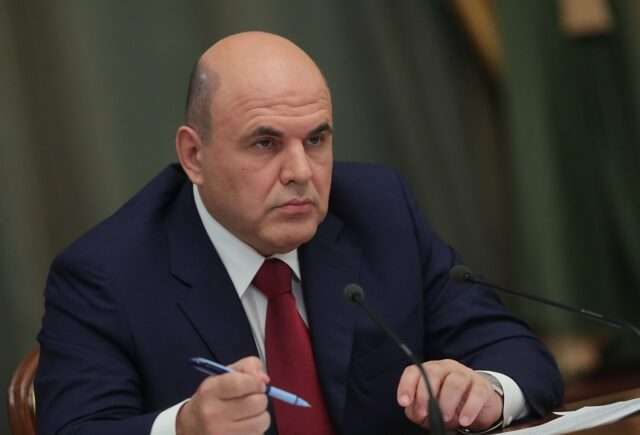Mishustin’s visit to Ashgabat and the Russia-Turkmenistan Business Forum confirm Moscow’s strategy in Central Asia

Author: Silvia Boltuc
The recent Russia-Turkmenistan business forum attended by the Russian Prime Minister Mikhail Mishustin confirmed Kremlin’s strategy in Central Asia and Moscow’s desire to deepen economic and diplomatic cooperation with Ashgabat to avoid any further external interference by the European Union, China, or the United States.
- Due to its geographical position and natural gas resources, Turkmenistan has a significant role in Central Asia and the Eurasian geopolitical chessboard.
- Russia wants to increase its cooperation with Turkmenistan to avoid external interference from the West or China.
- Since the Turkmen natural gas resources, Brussels has looked to Ashgabat as a potential strategic partner to support EU Energy Security Strategy and contrast the European dependence on Russian gas.
- Increasing economic and political relations between Russia and Turkmenistan might deter Brussels’ cooperation with Ashgabat, especially in the energy field.
Background
On January 19th, 2023, Russian Prime Minister Mikhail Mishustin begins his first foreign visit this year by travelling to Ashgabat, where he will participate in the plenary session of the Russian-Turkmen business forum. The Russian Prime Minister should also have talks with Turkmen President Serdar Berdimuhamedov to discuss the development of Russian-Turkmen cooperation, particularly in the trade, economic, transport, industrial, energy, cultural and humanitarian spheres.
The Russian-Turkmen business forum is held to deepen bilateral trade, economic and industrial cooperation, primarily between business circles and organizations of the two countries, according to the website of the Chamber of Commerce and Industry of the Russian Federation. A joint meeting of business councils and industry B2B meetings are planned among the events this time. Panel sessions of the forum will be devoted to bilateral cooperation in transport and logistics, industry, education, and digitalization.
Last year, Moscow and Ashgabat celebrated the 30th anniversary of establishing diplomatic relations. According to Russian sources and official statements, the Kremlin considers Turkmenistan, a reliable strategic partner in the Central Asian region. Assessing the impact of the pandemic and the consequences of the Ukraine conflict, such as the Western sanctions against Russia, trade, economic, and investment ties between the two countries are developing. In the security field, Turkmenistan was the first Central Asian state with which Russia signed an agreement on cooperation in ensuring international information security.
The countries also have longstanding stable humanitarian and cultural relations. Indeed, more than 30 thousand Turkmen students are enrolled in Russian universities, while the Pushkin Russian-Turkmen School has been operating in Ashgabat for more than 20 years.
Why does it matter?
Mishustin visits Turkmenistan for the first time as head of the cabinet of ministers. Last year he visited Azerbaijan, Armenia, Belarus, Kazakhstan, Kyrgyzstan and Uzbekistan. The Russian Prime Minister’s official visits in the post-Soviet space stressed the Kremlin’s attempt to strengthen its influence and presence in Moscow’s blizhnee zarubezhe (near abroad) and lebensraum (vital space), especially Central Asia, to counter Western and Chinese strategies.
Since Turkmenistan might play a strategic role in supporting EU Energy Security Strategy to decrease Brussels’ dependence on Russian hydrocarbon, Moscow needs to confirm its commitment to the Central Asian republic by improving diplomatic and economic ties.
On the other hand, Turkmenistan needs to increase its oil & natural gas exports to support national socio-economic development. The Memorandum of Understanding between Ashgabat and Baku signed in 2021 on joint exploration, exploration, and development of the Dostluk field stressed Turkmenistan’s attempt to establish a connection with the Caucasus region and energy market and diversify its oil export.
Undeniably, Turkmenistan has a strategic value in the Eurasian energy market because the country is rich in oil and natural gas reserves. According to official figures, Turkmenistan’s resource base is approximately 71.64 billion tons of oil equivalent, including 53 billion tons in onshore fields and 18.21 billion tons in the Caspian Sea. In 2016 the Oil and Gas Journal declared Turkmenistan the sixth largest natural gas reserve holder globally and estimated an amount of 265 trillion cubic feet (Tcf) of proven natural gas reserve.
Since the ’90s, the European Union has tried to create a dialogue with Turkmenistan and expressed interest in the Turkmen oil and natural gas reserves. Media and international sources and Turkmen and European official representatives have intermittently promoted the Transcaspian Gas Pipeline Project (TCP), whose purpose was to transport natural gas from Turkmenistan and Kazakhstan to European Union member countries circumventing both Russia and Iran. In this context, if Russia enforced its energy, transport, trade, and political cooperation with Turkmenistan, the European Union might lose a significant energy partner and alternative route to counter the current energy crisis.
